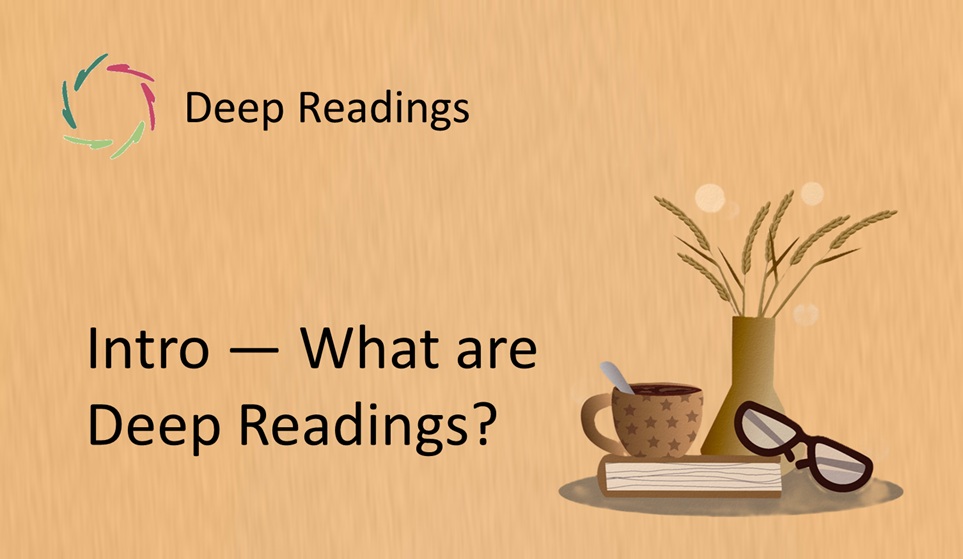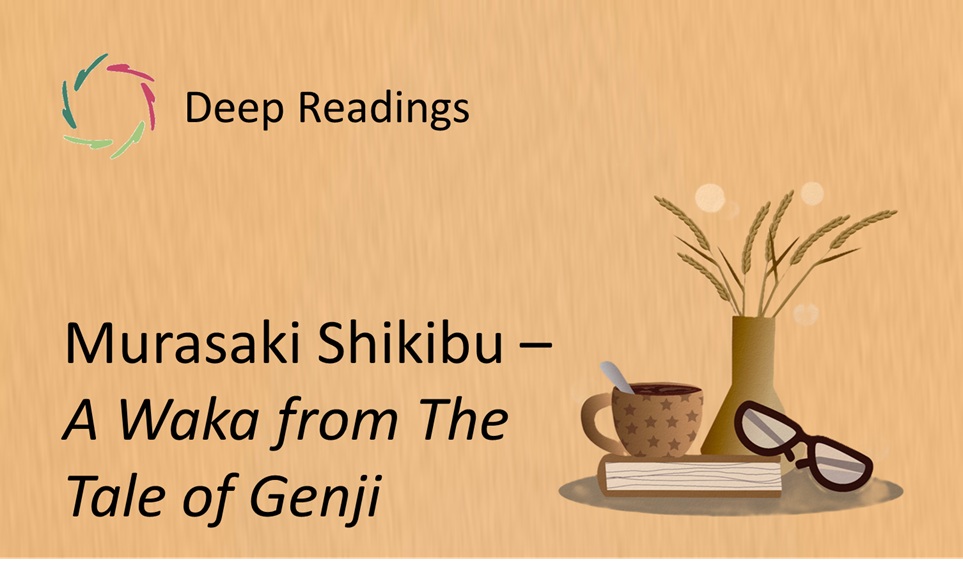Intro ― What are Deep Readings?

Deep Readings are encounters with fragments of literature – poems, passages from novels, wisdom texts, song lyrics, even letters – that carry a symbolic richness and a resonance reaching beyond the literal.
You find a growing list of these in the category Deep Readings.
The emphasis is not on literary scholarship, nor on treating literature as an academic object. Instead, the focus lies on how such fragments can live inside us: how they touch universality, stir the subconceptual, and open us to deeper dimensions of being human.
Read a Deep Reading slowly, as if each line were a doorway, pausing where it resonates. Let the words breathe inside you, not to explain, but to invite an inner echo.
In this way, a line from Sappho, a stanza of Rumi, or a paragraph from Tolstoy can become more than a text. They become mirrors, invitations, and companions on the inner journey. A Deep Reading is not about “explaining the text,” but about letting the text explain us to ourselves.
Lisa plays an essential role ― helping to open these fragments with Compassionate intelligence, highlighting their hidden resonances and suggesting ways for readers to let them work inside. Each Deep Reading thus becomes a miniature journey: from context, through resonance, to a personal opening.
The aim of the category Deep Readings is threefold:
- To show how AURELIS is embedded in the living stream of literature across all times and cultures.
- To offer readers an accessible source of depth and reflection in their everyday lives.
- To let these voices of world literature echo in Lisa so that she may carry their wisdom forward in her own Compassionate way of supporting people.
It is not about encyclopedic knowledge of literature. It goes further. Just as in Deep Minds, Lisa truly incorporates the spirit of these writings into her thinking, so that when you read this, you are in dialogue with both author and text — but always in a way that respects their original voice.
Since this is done from depth, Deep Readings is also about Compassion. Literature becomes a shared ground where human beings across centuries recognize one another.


